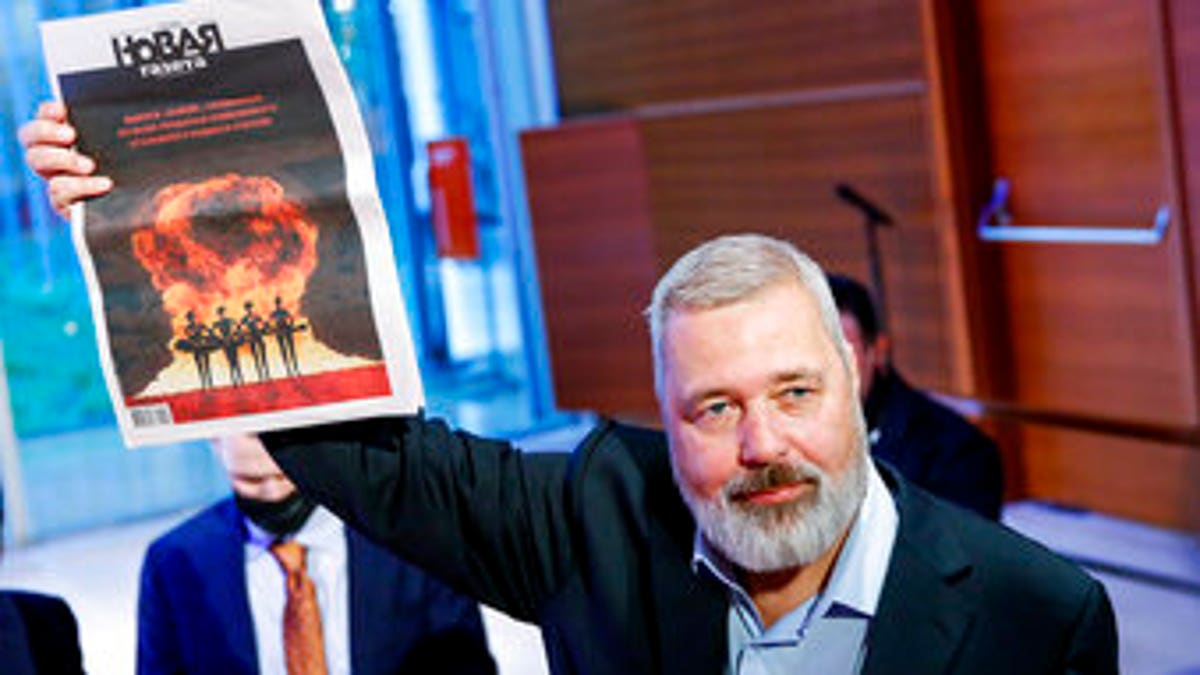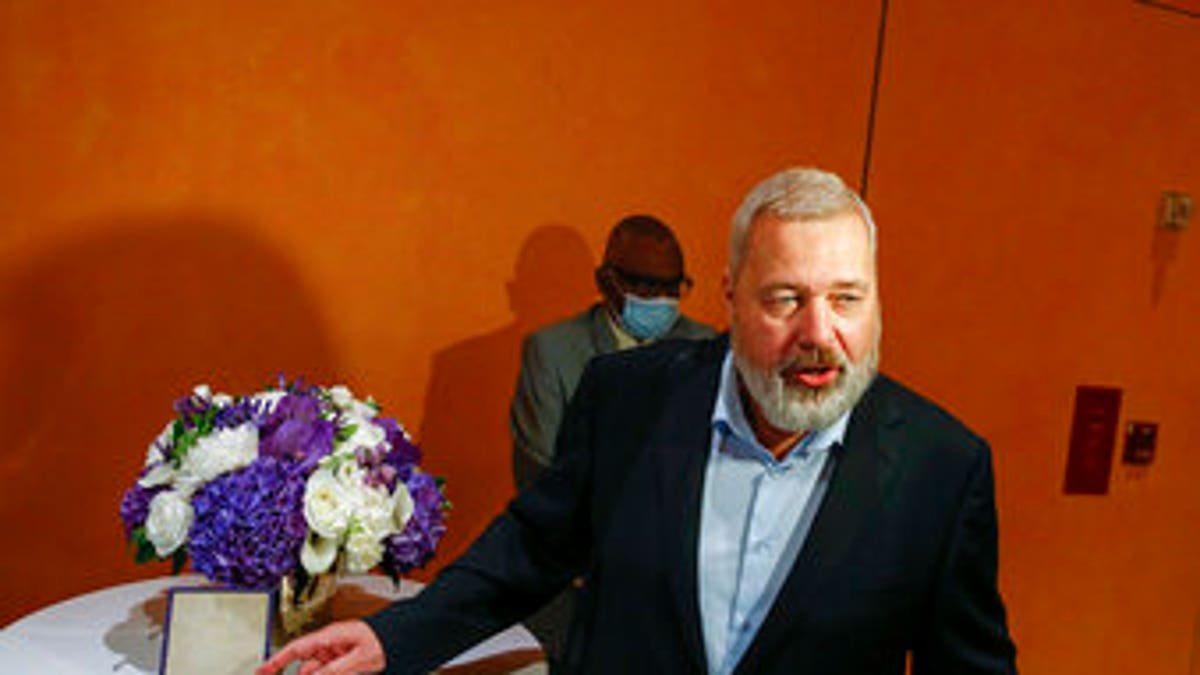Nobel Peace Prize recipient Dmitry Muratov's to auction Nobel Peace Prize for Ukrainian refugees
Head of Press Service at Novaya Gaze, Nadezhda Prusenkova, says the Nobel Peace Prize auction will be the newspaper and Dmitry Muratov's "contribution to peace" to Ukraine refugees
The Nobel Peace Prize auctioned off by Russian journalist Dmitry Muratov to raise money for Ukrainian child refugees sold Monday night for $103.5 million, shattering the old record for a Nobel.
A spokesperson for Heritage Auctions, which handled the sale, could not confirm the identity of the buyer but said the winning bid was made by proxy. The $103.5 million sale translates to $100 million Swiss francs, hinting that the buyer is from overseas.
"I was hoping that there was going to be an enormous amount of solidarity, but I was not expecting this to be such a huge amount," Muratov said in an interview after bidding in the nearly 3-week auction ended on World Refugee Day.
Previously, the most ever paid for a Nobel Prize medal was $4.76 million in 2014, when James Watson, whose co-discovery of the structure of DNA earned him a Nobel Prize in 1962, sold his. Three years later, the family of his co-recipient, Francis Crick, received $2.27 million in bidding also run by Heritage Auctions.
THINGS HAVE CHANGED: HOW BOB DYLAN WON THE NOBEL PRIZE FOR LITERATURE
Muratov, who was awarded the gold medal in October 2021, helped found the independent Russian newspaper Novaya Gazeta and was the publication’s editor-in-chief when it shut down in March amid the Kremlin’s clampdown on journalists and public dissent in the wake of Russia’s invasion of Ukraine.
It was Muratov’s idea to auction off his prize, having already announced he was donating the accompanying $500,000 cash award to charity.
Muratov has said the proceeds will go directly to UNICEF in its efforts to help children displaced by the war in Ukraine. Just minutes after bidding ended, UNICEF told the auction house it had already received the funds.
Online bids had begun June 1 to coincide with the International Children’s Day observance. Many bids came by telephone or online. The winning bid, tendered by telephone, catapulted the bidding from the low millions to astronomical levels.

Dmitry Muratov auctioned his Nobel Prize for Ukrainian child refugees. (AP)
Muratov had left Russia on Thursday to begin his trip to New York City, where live bidding began Monday evening.
FIFA'S BAN ON RUSSIA ADDS NEW LAYER TO UKRAINE CONFLICT
Early Monday, the high bid was only $550,000. The purchase price had been expected to spiral upward — but not over $100 million.
"I can’t believe it. I’m awestruck. Personally, I’m flabbergasted. I’m stunned. I don’t really know what happened in there," said Joshua Benesh, the chief strategy officer for Heritage Auctions.
"We knew that there was a tremendous groundswell of interest in the last couple of days by people who were moved by Dimitry’s story, by Dimitry’s act of generosity, that the global audience was listening tonight," he said.
Muratov and Heritage officials said even those out of the bidding can still help by donating directly to UNICEF.
Muratov shared the Nobel Peace Prize last year with journalist Maria Ressa of the Philippines.
The two journalists, who each received their own medals, were honored for their battles to preserve free speech in their respective countries, despite coming under attack by harassment, their governments and even death threats.
Melted down, the 175 grams of 23-karat gold contained in Muratov’s medal would be worth about $10,000.
RUSSIA'S WAR ON UKRAINE CAN DRAG ON FOR ‘YEARS’ NATO'S CHIEF SAYS
Muratov has been highly critical of Russia's 2014 annexation of Crimea and the war launched in February that has caused nearly 5 million Ukrainians to flee to other countries for safety, creating the largest humanitarian crisis in Europe since World War II.

Nobel Peace Prize winner Dmitry Muratov standing with his award which auctioned for $103.5M.
Independent journalists in Russia have come under scrutiny by the Kremlin, if not outright targets of the government. Since Putin came into power more than two decades ago, nearly two dozen journalists have been killed, including at least four who had worked for Muratov's newspaper.
RUSSIA SAY'S IT WON'T USE NUCLEAR WEAPONS IN UKRAINE, DESPITE THREATENING RHETORIC
In April, Muratov said he was attacked with red paint while aboard a Russian train.
Since its inception in 1901, there have been nearly 1,000 recipients of the Nobel Prizes honoring achievements in physics, chemistry, physiology or medicine, literature and the advancement of peace.








































